What Really Happens When You Cook Your Vegetables!
When I first starting dating my boyfriend, vegetables were basically non-existent in his diet. The number of times he told me he didn’t like the way certain vegetables tasted or that they were “gross” was almost infuriating. I think in the first 4 months we were dating the only time I saw this guy eat anything other than chicken breast or ground beef was when I hid some frozen cauliflower in a smoothie I made for him! Fast forward two years later and now we eat roasted veggies every day. What changed?? Well I realized he grew up eating vegetables that were extremely boiled with next to no nutrient content left in them! On multiple occasions I pretty well forced him to try some seasoned/oven roasted broccoli and sweet potato. I still remember the first time he tried broccoli roasted and the look on his face when he said “wow this is actually good, they taste so different”.
The other day we were talking about this when we were eating dinner and joking around about when I used to have to force him to eat vegetables and now he gets excited about it because they taste so different then what he was used to, so I decided to write this post! I have had friends, family and even clients that tell me they “hate” vegetables or can’t digest vegetables - which totally happens and there is 100% reasons behind why this happens to certain individuals. But, I wanted to touch on something I see happen a lot. STOP OVER BOILING YOUR VEGETABLES. Heat destroys antioxidants and deactivates certain enzymes. Along with this when vegetables are boiled in water nutrients leach from them into the water and the vegetables suffer major nutrient loss along with a loss of flavour. I promise you brussel sprouts and broccoli can taste good. The goal of cooking vegetables isn’t to make them tasteless though, it’s to help break down the cell wall so that they are easier to digest and so that they taste can become more vibrant! With that said, here are some common cooking methods for vegetables and the pros and cons of how they affect them nutritionally.
Steaming
Steaming is a good method to use if you are having issues with digesting vegetables (they make you bloated or gassy specifically). It helps to break down plant membranes to allow for easier digestion, while for the main part keeping the nutrients within the vegetables intact. When not overdone, it is also known as one of the best methods to maintain polyphenols, which are a group of antioxidants, apart from preparing vegetables raw.
Boiling
Boiling vegetables is typically not as efficient as other methods when it comes to retaining nutrient content. Basically what happens is the water the vegetables are boiled in pulls the nutrient content from them and the high heat destroys a lot of antioxidant properties. Your vegetables should never be tasteless, this is a sign they have been over boiled and have lost a mass amount of nutrient value.
Raw
In some cases the best way to prep your vegetables is to eat them right out of the ground (not prep them at all). As far as keeping enzymes in tact this is by far the best way to have your vegetables. Not only are you keeping the enzymes and nutrients in tact but you are also able to taste the vegetables in their true form and get the benefits from that as well. Eating vegetables raw doesn’t always mean that you have to eat them straight up either, I prefer mine along with hummus or tossed in a salad!
With this in mind, some struggle to sufficiently break down the cell walls within raw vegetables to get the nutrient value from them, which means roasting or steaming may be a better option for them.
Stove-Top Sauteing
Sauteing is a super quick and easy way to cook veggies. Aside from roasting it is probably one of my favourite cooking methods, it allows the vegetables to get a ton of flavour. Due to the fast nature of this cooking and relatively lower heat compared to roasting, a lot of the nutrient content is maintained.
Roasting
Roasting vegetables has both advantages and disadvantages. While due to high heat exposure there is some nutrient loss, a lot of the fibre stays in tact as well as certain nutrients. Roasting also brings out flavor of vegetables, along with the right spices you are set!
My Favourite Roasting Recipe
Ingredients
1 head of broccoli
2-3 tbsp of avocado oil
Himilayan salt and pepper to taste
Mrs Dash Herb and Garlic to taste
Instructions
Preheat oven to 425 degrees. Wash, dry and cut broccoli into medium sized pieces.
In a medium sized bowl, coat the broccoli with olive oil and mix in salt pepper and seasoning.
Using a baking tray, cover with parchment paper and spread broccoli across then place in the oven and cook for 10 mins, then flip and cook for 10 more mins.
Serve!

![6[1].jpg](https://images.squarespace-cdn.com/content/v1/5b75fa2a9f8770a7699b777e/1582583236795-LVDFH9HP95PEXX2EFL13/6%5B1%5D.jpg)

![5[1].jpg](https://images.squarespace-cdn.com/content/v1/5b75fa2a9f8770a7699b777e/1582583804525-XMCH7OO950MX8YSEQ208/5%5B1%5D.jpg)
![8[1].jpg](https://images.squarespace-cdn.com/content/v1/5b75fa2a9f8770a7699b777e/1582583890392-KRE5U2732W00DSNHKO43/8%5B1%5D.jpg)
